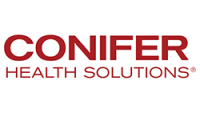Managing the healthcare revenue cycle is more challenging — and more critical — than ever. Amid sluggish margins, ongoing staffing challenges and rising costs, providers feel unprecedented pressure to optimize their revenue cycles. Addressing the ever-increasing issue of denials is a great place to begin. The latest data on denials and proven strategies to reduce their impact follow below.
Financial impact of denials
Recent research indicates that denied claims are now one of the top concerns of healthcare leaders across the industry. Twenty-two percent of healthcare leaders surveyed say their organization loses at least $500,000 annually to denials, while one in ten reports losing over $2 million annually. These numbers are expected to grow with ever-present payer policy changes.
The growing challenge of denials is in large part due to Medicare Advantage (MA) plans. A report published in November showed that MA plan denials have increased by nearly 56%, while commercial plan denials have increased by over 20%. MA denials related to net patient revenue have increased by more than 63%. Private payers have also increased denials and are now denying 15% of all claims on the first submission.
70% of healthcare leaders say that managing claims is even more important now than before the pandemic.
Administrative impact of denials
Besides impacting a provider’s bottom line, denials also create significant challenges in revenue cycle management. First and foremost, denied claims act as a gigantic cog that slows cash flow, increases days in A/R, delays reimbursement and causes unnecessary write-offs. As fallout from the pandemic continues to plague healthcare organizations, issues with cash flow and lost revenue impede recovery and long-term financial viability.
Additionally, denials take extensive resources, time and effort to research, rework and appeal. Research shows that the average administrative cost to rework an MA denial is now $47.77, and the average cost to rework a commercial denial is $63.76. With around three billion claims submitted annually, the total administrative cost has reached nearly $20 billion.
Denials also impact employee satisfaction. As staffing shortages continue to cause trouble for revenue cycle departments, backlogs and long hours can cause stress, burnout and turnover. The cost of hiring, recruiting and training new revenue cycle staff further adds to the overall impact of denials. New, inexperienced team members are often more likely to make mistakes, which can cause even more denials.
Strategies for mitigating the impact of denials
While there is growing concern that payers, especially MA plans, are denying claims that should have been paid initially, the majority of denials still occur because of inefficient provider processes. According to a study, the top causes of denials are issues with authorizations, provider ineligibility and coding errors. Issues with modifiers, submission deadlines and inaccurate patient information are also listed as top reasons.
The good news is that providers can address each of these issues using the following four strategies.
- Leverage advanced analytics to identify denial patterns and common points of failure. AI-enabled technologies can provide comprehensive insight into the root causes of denials so they can be proactively addressed. This includes payer-specific patterns as well as more system or process-oriented issues. Along with this analysis, AI can predict with a high level of certainty which appeals are most likely to be successful and then provide the information needed to create the appeal.
- Implement extensive training to create a high-performing revenue cycle team. Conducting ongoing training for new and seasoned staff can be challenging when everyone is already overwhelmed with a heavy workload. However, errors in coding, documentation and patient-access processes ultimately cause even more work. One of the best ways to improve productivity and quality is by requiring staff to achieve and maintain relevant industry certifications. This should include completing annual continuing education credits.
- Conduct regular audits. In addition to increasing denials, payers are also increasing audits and takebacks. Providers can stay a step ahead by conducting their own audits on a regular basis. Two critical areas that audits should include are clinical documentation and coding quality. The documentation audit process should look at actual documentation examples and involve both CDI professionals and physicians. For coding, audits should look for issues like frequent unbundling, upcoding and incorrect appending of modifiers. These audits can help identify recurring problems and the need for additional staff training.
- Assess payer patterns. Providers should regularly review compliance with payer requirements. This should include identifying which payers deny and overturn specific types of claims. As an example, MA plans tend to deny and then overturn an inordinate number of claims due to medical necessity. By identifying the most problematic payers, staff can take extra steps to ensure documentation to these payers is complete, coding is accurate and submission complies with timely filing guidelines. If a denial occurs, providers have the information they need to appeal or even prevent these denials in the future.
The time to act is now
While denials are on the rise — a trend that is likely to continue — there are proven steps providers can take to mitigate their impact. By leveraging analytics, exploring productivity improvement technologies, implementing extensive training, conducting regular self-audits, and identifying and addressing specific payer patterns, providers can achieve significant improvements relatively quickly while creating sustainable, long-term revenue cycle stability.






